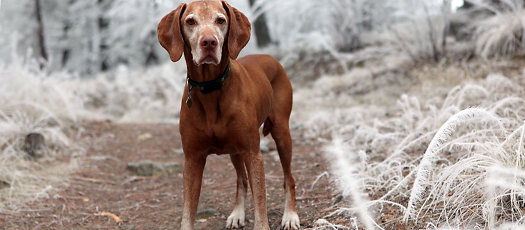Dog food for small and large breeds
Dog food is not often universal. Small and large breeds need the right approach to nutrition, and choosing a healthy diet is not a marketing ploy, but a need for your pet’s care. When choosing a diet, focus not only on the age and activity of an adult animal, but also on its size – after all, each breed has its own needs, on which the quality of life depends.
Differences in calorie content and composition
Dry food for small breed dogs – such as Chihuahua, Toy Poodle, Spitz, Bolognese, and others – should consist of easily digestible animal proteins, and also include natural vegetables, fruits, and medicinal herbs. Ideal sources are considered to be dietary lamb, chicken, turkey, or sea fish. In addition, preference should be given to grain-free diets, since adult miniature pets often have sensitive stomachs and a tendency to digestive disorders.
Dry food for medium and large breeds of dogs, such as huskies, shepherds, beagles, and staffies, should be rich in vitamins and minerals to support the musculoskeletal system, and also contain a high proportion of meat ingredients – chicken, turkey, beef, lamb, or fish. Active pets who love to jump and frolic all day need a balanced diet to replenish energy, and in the absence of nutritional problems, it is permissible to choose a diet with a moderate intake of grains – rice, corn, or wheat.
Granule Size: Why It Matters
The size of kibble in food is not only a matter of convenience, but also an important factor in the dog’s safety. Small breeds with small jaws are suitable for small granules that are easy to grasp and chew – they maintain dental health, ensure good digestion and minimize energy costs, helping pets get the most out of their diet. Large and medium breeds require large and dense granules – they stimulate thorough chewing, promote the need for satiety and reduce the risk of gastrointestinal problems.
Protein and fat requirements
Nutrient requirements in food depend on the size and physiological characteristics of dogs of different breeds. Small pets require more calories per kilogram of body weight, so their food contains an increased amount of fats and easily digestible proteins to properly ensure a fast metabolism. At the same time, large breed animals need a moderate level of fats to avoid excess weight and reduce the load on the joints. It is also important for them to create a diet with high-quality proteins – they maintain muscle mass and promote tissue regeneration.
How Does Dog Size Affect Nutrition?
The size of the dog directly affects the formula and composition of dry food, since animals of different sizes have different physiological characteristics and needs. Small adult breeds have an accelerated metabolism and often require more nutritious food with a high energy density to cover daily energy expenditure.
The granules must be easy to chew. Large breeds of pets, on the contrary, are prone to overeating and problems with the musculoskeletal system, so for them, food with reduced calorie content, fat content control, and additives for joint support are selected. The size of the animal also affects the rate of food absorption and the need for special functional ingredients, which makes the correct selection of the diet strictly individual and taking into account the characteristics.
What supplements are good for different breeds
Regardless of breed and size, dogs need a properly balanced diet with a full range of vitamins and microelements. All pets need:
- Vitamin A – for vision and immunity;
- Group B – for energy and the nervous system;
- Vitamin D – for strong bones and teeth;
- Omega-3 and -6 – to maintain healthy skin and coat;
- Prebiotics and probiotics – to help digestion work better.
Large and medium breeds need additional protection of joints from significant loads: glucosamine and chondroitin restore cartilage tissue and slow down the destruction processes, and calcium and phosphorus provide a strong skeleton.
Small breeds need an accurate account of B vitamins, biotin, zinc to maintain energy and a well-groomed appearance, and antioxidants (E and C) protect against early aging of life. As they grow older, the diet is supplemented with taurine and L-carnitine – to support the heart and vision.






